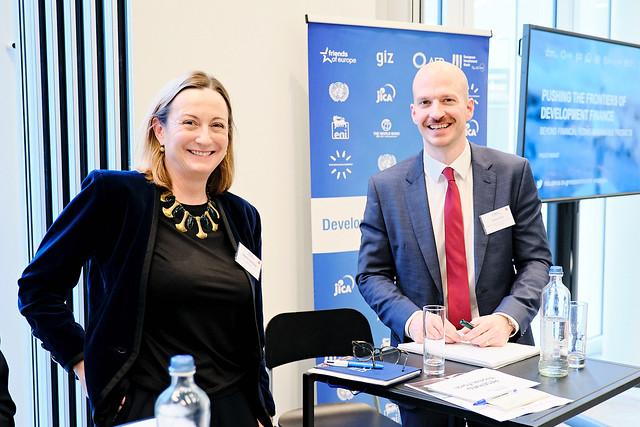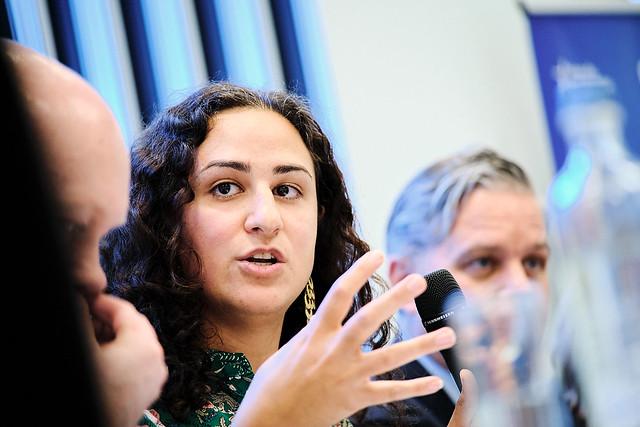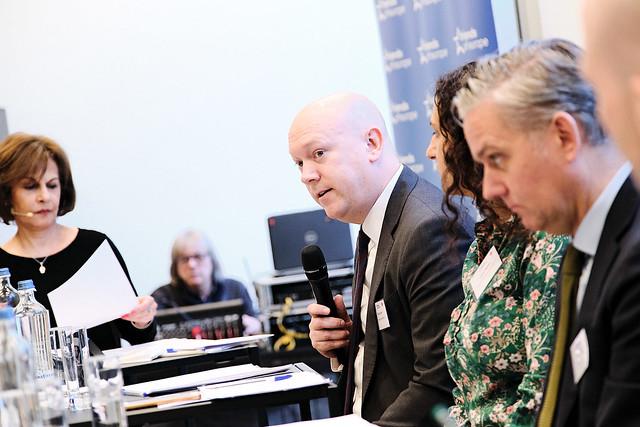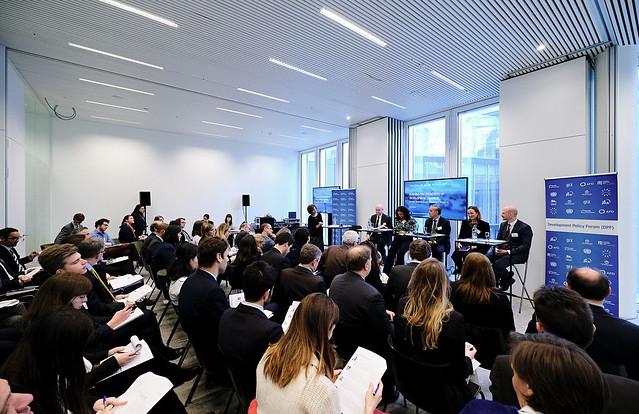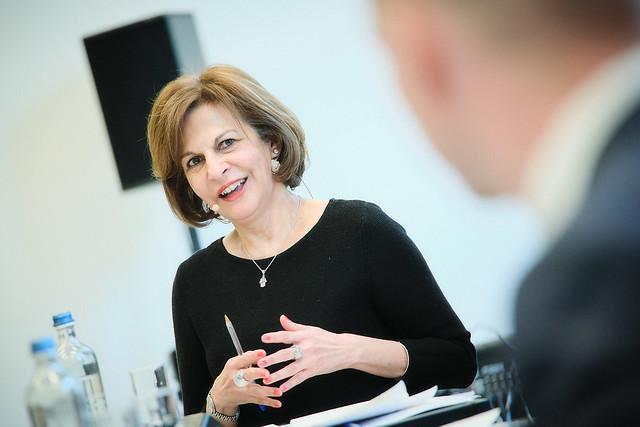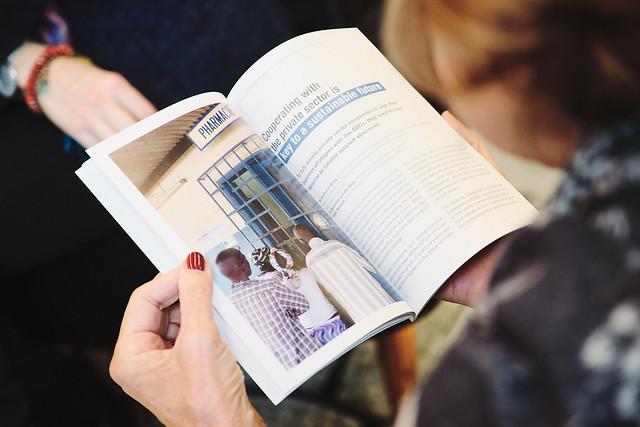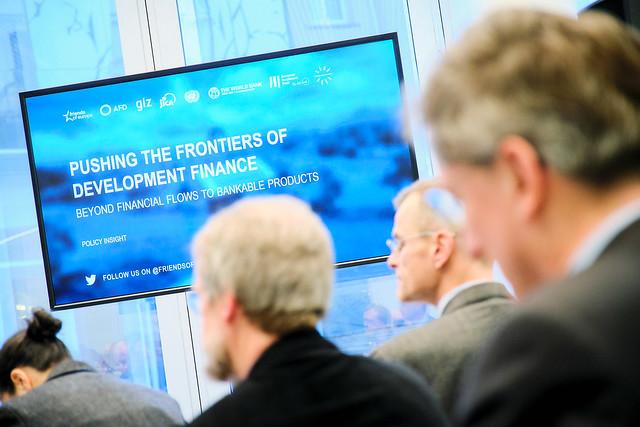Friends of Europe: Closing the SDG financing gap - The changing role of development cooperation
How can the international community approach the quest for financing the UN´s 2030 sustainable development goals (SDGs)? This question and different approaches and experiences were in the centre of a discussion, organised by the Brussels based think tank Friends of Europe beginning of February.
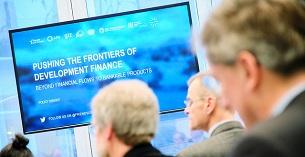
During the event, GIZ, who is part of Friends of Europe´s Development Policy Forum, delivered insights into its work and the added value of technical cooperation in combination with financing activities.
Key messages adopted during a UN’s high level meeting on financing the agenda 2030 stress that in order to achieve the SDGs, vast amount of additional funding is required. The funding gap in developing countries alone amounts to about USD 2.5trn every year. Only additional public funds and especially a better mobilization of private funds can close this gap. This calls according to the meeting for new approaches of development cooperation.
In Brussels, the EIB shared insights in its approaches, which focus increasingly on innovative financial instruments such as ‘Sustainability Awareness Bonds’ to help to fund SDG-themed projects. They alleviate the biggest risk that private investors face in Africa: state-owned enterprises defaulting on their payments. “The smart, targeted use of public funds to leverage private investment is key,” stated Richard Amor, Head of the EIB’s Institutional and Implementation Unit.
Attracting private capital for investments also requires public money pledging to cover losses and hence mitigating the risk of private investors, added Kay Parplies, Head of the Unit Investment and Innovative Financing, at the European Commission’s Directorate General for International Cooperation and Development. According to Parplies, private equity firms such as KOIS Invest use ‘development’ or ‘humanitarian impact bonds’ to help funnel money loans (via local banks) to small businesses or female-run enterprises. “It’s not about the profits of the assets, but the impact on the ground and putting a monetary value on that,” said Béatrice Delperdange, Head of Business Development at KOIS Invest.
“Innovative financial instruments are only a part of the solution”, argued Thomas Förch, Senior Technical Expert from GIZ’s Competency Center on Financial Systems Development. While financial instruments and financial cooperation can re-distribute existing risks, technical cooperation can reduce risks. He added, that the availability of international capital is often not the question but the capital flows to developing countries. The core obstacle is, according to Förch, that bankable projects and conducive framework conditions are lacking.
Furthermore, not all efforts to achieve the SDGs can be made through investments alone, stated Förch. Areas like healthcare or education will always call for a strong role of the government which often needs support. Hence, technical cooperation can and should be part of the solution of SDG financing.
The following discussion therefore explored the need for new partnership models between development partners and private investors as well as between financial cooperation and technical cooperation. The participants agreed that joint hands are necessary to surmount the financing gap for achieving the SDGs. While GIZ has already piloted some interesting partnerships with institutions such as EIB in the area of energy finance or with private investors to establish, for example, an online platform that allows users to compare the costs of wiring money, these models need to be further developed. (For more information about the mentioned projects see the links below).
Links
